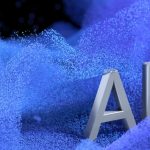Deception Island, nestled in the icy expanse of Antarctica, has emerged as a prime location for simulating Martian environments. Its unique geological and climatic conditions provide researchers with a terrestrial laboratory to test equipment and study life forms under extreme conditions. Beyond its natural allure, the island offers invaluable insights that could accelerate the preparation for future Mars missions.
Recent studies have highlighted Deception Island’s potential, aligning with earlier research that identified Earth’s harshest environments as suitable Mars analogues. Previous explorations often focused on isolated regions, but this comprehensive approach emphasizes a wide array of matching sites, enhancing the reliability of simulations conducted here.
How Does Deception Island Compare Geologically to Mars?
The island showcases volcanic landscapes, similar to Martian terrains, providing a realistic setting for geological experiments. These features allow scientists to study rock formations and volcanic activity that mirror those found on Mars, aiding in the interpretation of Martian data.
What Environmental Conditions Make It Suitable for Mars Simulation?
Deception Island experiences extreme cold, high radiation levels, and permafrost, closely resembling Mars’ harsh climate. These conditions enable researchers to test the resilience of materials and the functionality of equipment intended for use on the red planet.
How Do Extremophiles on the Island Inform Mars Research?
The presence of extremophiles, microorganisms that thrive in harsh environments, provides a model for potential life forms on Mars. Studying these organisms helps scientists understand how life might adapt to Martian conditions, guiding the search for biosignatures.
Conclusively, Deception Island stands out as a multifaceted analogue for Mars, offering diverse environments that parallel the Martian surface. Its volcanic activity, chemical composition, and biological diversity make it an essential site for ongoing and future research. By leveraging this natural laboratory, space agencies can enhance mission planning, improve technology testing, and deepen our understanding of potential life beyond Earth. The continuous collaboration between scientists and explorers on Deception Island will likely yield significant advancements in our quest to explore and possibly inhabit Mars.










